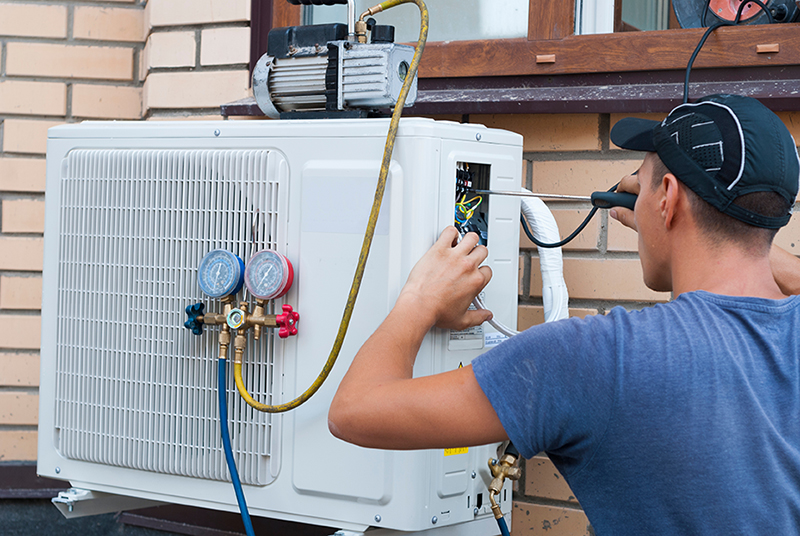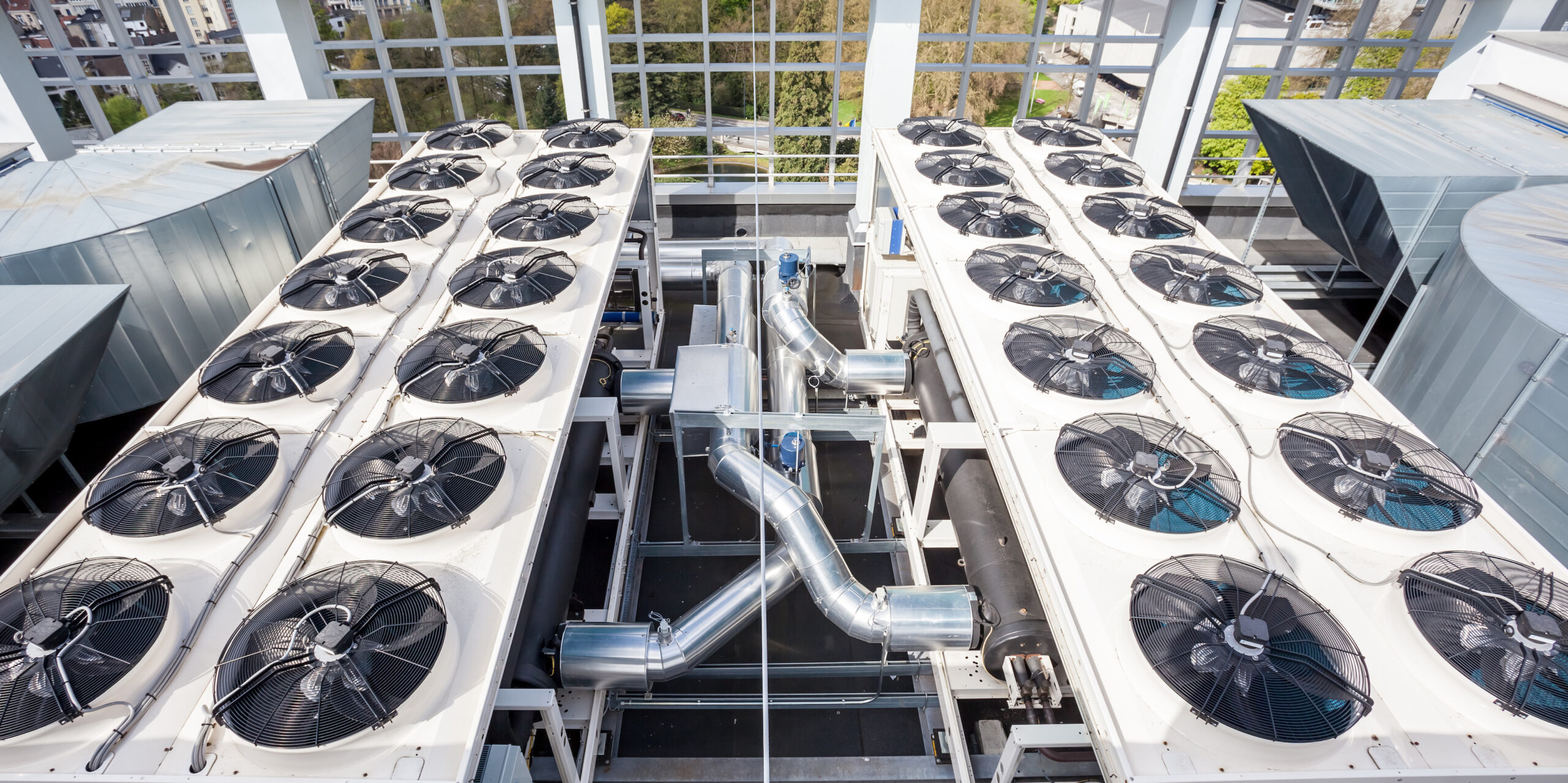Trusted Air Duct Cleaning Coquitlam For Fresher Indoor Air Quality
Trusted Air Duct Cleaning Coquitlam For Fresher Indoor Air Quality
Blog Article
Your Guide to Selecting the Right HVAC System for Your Needs
Picking a proper heating and cooling system is a vital choice that can significantly influence comfort and energy efficiency in your home. Various factors should be considered, including the size of your home, neighborhood environment problems, and particular heating or cooling down needs. Furthermore, comprehending the various sorts of systems available and their energy ratings can help lead your option. By reviewing these elements very carefully, you can avoid typical challenges. What essential considerations should you focus on to guarantee your financial investment fulfills both prompt and long-term requirements?
Comprehending HVAC System Types
When selecting a HVAC system, it is important to comprehend the numerous kinds available to meet your particular requirements. The key classifications of heating and cooling systems consist of air conditioning systems, ductless mini-split systems, warm pumps, and heating system systems.
Air conditioning systems are designed to cool down multiple areas using ductwork to distribute conditioned air. They are excellent for larger homes calling for constant temperature control. Ductless mini-split systems, on the various other hand, offer flexibility and effectiveness, as they enable zoning capabilities, allowing individual space temperature guideline without the demand for ductwork.
Warm pumps operate by moving heat as opposed to creating it, making them an energy-efficient option for both cooling and heating. They are especially reliable in moderate environments. Alternatively, heating system systems make use of burning to generate warm, making use of either electrical power, gas, or oil. They are favored in cooler regions where home heating demands are significant.
Each system has distinctive advantages and factors to consider, consisting of installation requirements, upkeep, and total costs. Recognizing these kinds will aid property owners make notified decisions based upon their specific demands, climate, and spending plan restrictions, eventually guaranteeing optimum convenience and efficiency.
Examining Energy Performance
Power efficiency is an important element in the choice of a HVAC system, as it straight influences both energy costs and environmental sustainability. When evaluating energy effectiveness, numerous metrics and scores can help guide your choice. The Seasonal Energy Efficiency Ratio (SEER) and the Heating Seasonal Performance Factor (HSPF) are important signs for a/c systems, representing their effectiveness over a normal air conditioning and home heating season, respectively. Greater SEER and HSPF scores indicate better energy efficiency, resulting in lowered energy intake.
Additionally, look for systems that have made the power celebrity label. This accreditation represents that the devices fulfills rigorous power effectiveness standards established by the U.S. Epa. Consider the system's variable-speed technology, which enables for much more effective procedure by changing the result to match demand, better boosting energy cost savings.
Moreover, proper insulation and duct sealing can considerably influence the system's general effectiveness. In summary, selecting an energy-efficient cooling and heating system not just reduces your energy costs however additionally contributes to a much more sustainable setting, making it an essential factor to consider in your purchasing procedure.
Assessing System Dimension
Picking the appropriate size for an a/c system is vital to guaranteeing optimal efficiency and efficiency. A small system might battle to keep desired temperature levels, resulting in increased damage, higher energy intake, and diminished comfort. Conversely, an oversized system can result in quick biking, which not only creates inadequacies yet likewise affects moisture control and air quality.
To assess the excellent sizing, it is important to carry out a lots calculation, which takes into consideration variables such as the square footage of the area, insulation levels, home window dimensions, and regional environment conditions - hvac. This calculation assists determine the British Thermal Systems (BTU) needed for heating & cooling. Additionally, it is vital to make up specific needs, such as the number of owners and the existence of heat-generating devices

Installment Expenses and Budget
An extensive understanding of installation prices is crucial for house owners and organizations considering a new HVAC system. The complete expenditure of installment can vary extensively based on several elements, consisting of the kind of system, the complexity of setup, and the location of the home. Typically, setup expenses can range from $3,000 to $10,000, relying on the system's size and performance.
When budgeting for an a/c system, it is vital to consider not only the preliminary installment expenses but also any type of additional expenses that might arise, such as ductwork adjustments, electrical upgrades, or permits. Furthermore, it is a good idea to acquire multiple quotes from qualified heating and cooling service providers to guarantee competitive rates.
Home owners must likewise consider the possible long-lasting savings related to energy-efficient systems. While the in advance prices may be greater, energy-efficient versions can bring this post about substantial cost savings on utility costs with time.

Maintenance and Long Life Considerations

Appropriate upkeep includes routine examinations, filter replacements, and cleansing of ducts and coils (hvac). Disregarding these jobs can lead to reduced effectiveness, increased energy costs, and early system failing. Property owners must likewise think about the accessibility of service contracts, which commonly provide scheduled maintenance and top priority solution, making sure that the system continues to be in peak problem
Longevity differs by system type; for instance, well-maintained air conditioning systems can last 15 to two decades, while heat pumps may have a life expectancy of 10 to 15 years. Selecting a system with a solid online reputation for integrity, along with investing in regular upkeep, can significantly improve the system's toughness. In addition, choosing for higher-efficiency designs may result in long-term financial savings on energy bills, stabilizing the initial financial investment with time.
Verdict
In final thought, picking a suitable cooling and heating system requires cautious factor to consider of numerous variables, including system types, energy effectiveness, and dimension. find more Examining installment costs and long-term maintenance needs is crucial for making certain optimum efficiency and cost-effectiveness. Involving with HVAC professionals can supply useful understandings and customized recommendations that line up with details home heating and cooling down demands. Ultimately, a well-informed choice will enhance convenience and efficiency in property environments while making best use of power savings.
Picking a proper Heating and cooling system is a crucial choice that can dramatically influence comfort and power performance in your home.Energy performance is an essential aspect in the option of an A/c system, as it directly influences both utility expenses and ecological sustainability. The Seasonal Energy Performance Ratio (SEER) and the Home Heating Seasonal Efficiency Variable (HSPF) are vital signs for air conditioning systems, representing their efficiency over a typical cooling and home heating season, respectively. Picking a system with a solid reputation for dependability, along with investing in routine maintenance, can significantly improve the system's resilience.In verdict, picking an appropriate Heating and cooling system requires careful factor to consider of numerous factors, including system kinds, energy efficiency, and dimension.
Report this page